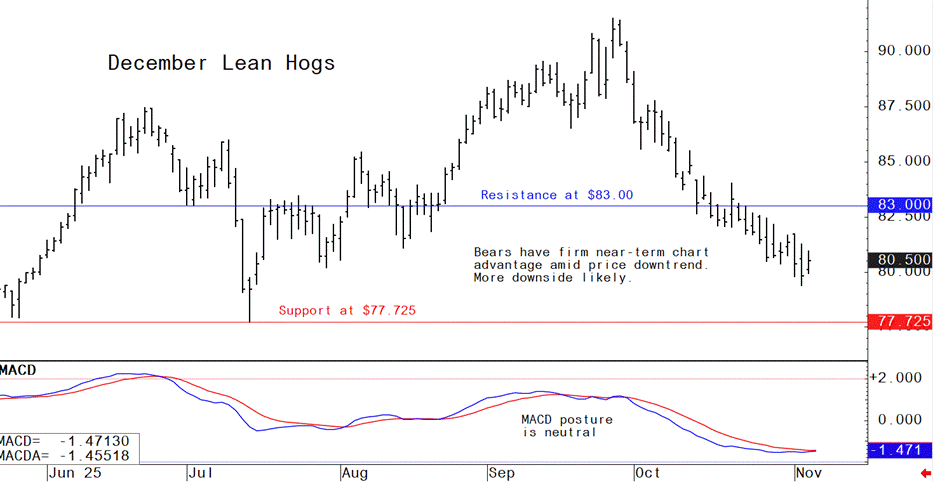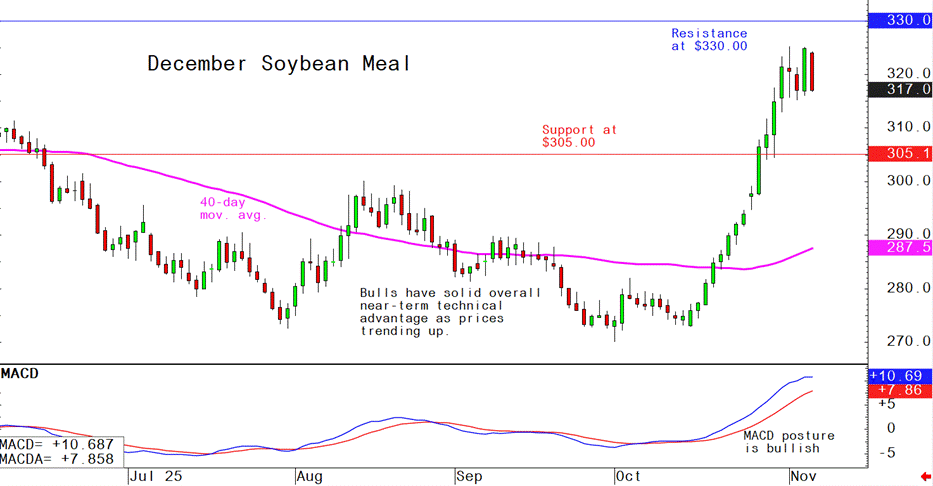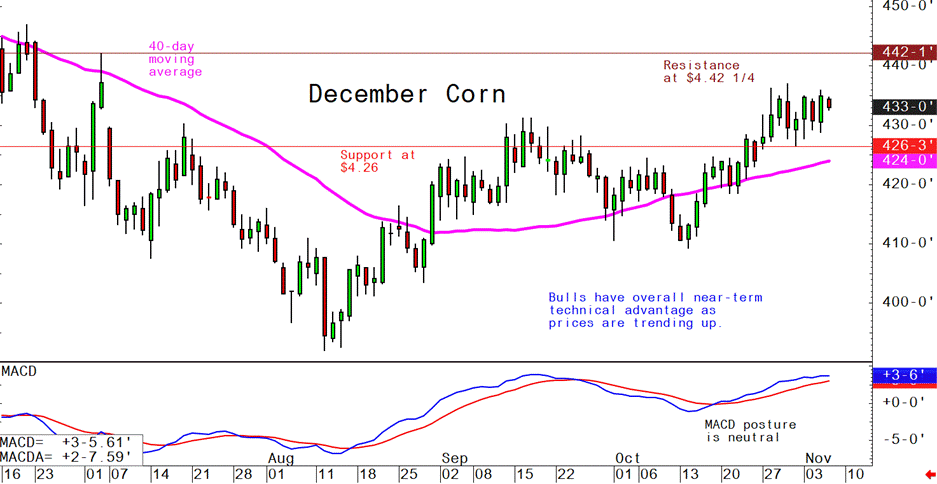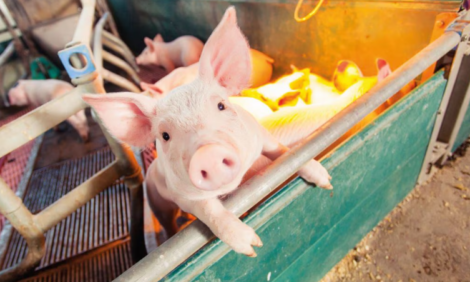



Pig outlook: Lean hog futures bears remain in command
Livestock analyst Jim Wyckoff reports on global pig news
December lean hogs Wednesday rose 67 1/2 cents to $80.60. The lean hog futures market Wednesday saw short covering and perceived bargain hunting after prices Tuesday hit a 3.5-month low. The cash hog market appears to be stabilizing, which also encouraged the hog futures bulls. Bulls also got some help from December hog futures’ discount to the cash index. The latest CME lean hog index is down another 8 cents at $90.90. Today’s projected cash hog index is down 4 cents at $90.86. Wednesday’s national direct 5-day rolling average cash hog price quote was $84.70.
Brazil’s pork sector set to lead animal protein growth through 2030
Rabobank and Safras & Mercado see poultry margins tightening as global supply expands
Brazil’s pork industry is emerging as the country’s strongest growth driver among animal proteins, with analysts forecasting sustained expansion through the next decade even as poultry producers face margin pressure from rising global supply.
Rabobank projects that chicken meat output will rise 2% in Brazil in 2026, compared with 1.6% in the U.S. and up to 2% in the EU — a pace that could weigh on international prices. Despite this, Brazil’s export outlook remains firm: consultancy Safras & Mercado expects the country to ship 5.5 million tonnes of chicken meat in 2026, aided by a more stable sanitary environment after avian flu disruptions earlier this year. “Lower prices show Brazil is using the international market to relieve domestic supply pressure,” said Fernando Iglesias, animal protein analyst at Safras.
By contrast, pork is forecast to deliver the fastest and most durable growth, with exports expected to expand 3.5%–7% annually through 2030. Iglesias called pork “the market with the highest potential to open new destinations and consolidate Brazil as one of the world’s top suppliers,” predicting the country will close 2025 as the world’s third-largest pork exporter.
At home, both poultry and pork sectors are expected to gain from tighter beef supplies next year — a dynamic that should boost domestic demand for lower-cost proteins.
Meatpacker JBS pays hefty fine to New York state
JBS SA, the world’s largest meatpacker, has agreed to pay $1.1 million to settle a lawsuit by the state of New York over allegations the company misled the public about reducing the impact of its operations on the environment. As part of the settlement, JBS agreed to revise language related to the company’s environmental marketing and produce annual reports to the New York Attorney General's office. The $1.1 million payment will be made to Cornell University’s College of Agriculture and Life Sciences’ New York Soil Health and Resiliency Program for the purpose of “supporting climate-smart agriculture.” In a statement, JBS said the settlement “does not reflect an admission of wrongdoing.” The company’s USA unit said it “remains driven to advance sustainable agriculture. We maintain a continued focus on investing in practical solutions that strengthen the resilience of the food system,” said JBS and as reported by Bloomberg.
US meat exporters welcome progress in China trade talks
US Meat Export Federation (USMEF) says tariff and port fee suspensions could restore key pork and beef market access.
USMEF praises new progress in US/China trade negotiations
This comes following last week’s meeting between President Donald Trump and Chinese President Xi Jinping. In a statement Sunday, USMEF President and CEO Dan Halstrom said the organization is “encouraged by the progress being made” and thanked the Trump administration for prioritizing agricultural exports.
Halstrom noted that if China suspends all retaliatory tariffs and non-tariff countermeasures imposed since March 4, U.S. pork would become significantly more competitive in the Chinese market. He added that renewal of expired beef plant and cold storage registrations would restore access to a “critical beef export market,” while also urging Beijing to address the recent delisting of certain U.S. beef plants for “technical violations.”
USMEF also welcomed the one-year pause on port service fees and maritime countermeasures, saying the suspension will help reduce shipping costs for U.S. exporters. However, Halstrom urged that efforts to rebuild the U.S. maritime sector should focus on incentivizing investment rather than raising costs for exporters and cargo owners.
The next week’s likely high-low price trading ranges:
December lean hog futures--$77.50 to $83.00 and with a sideways-lower bias
December soybean meal futures--$310.00 to $330.00, and with a sideways-higher bias
December corn futures--$4.25 to $4.40 and a sideways-higher bias
Latest analytical daily charts lean hog, soybean meal and corn futures










